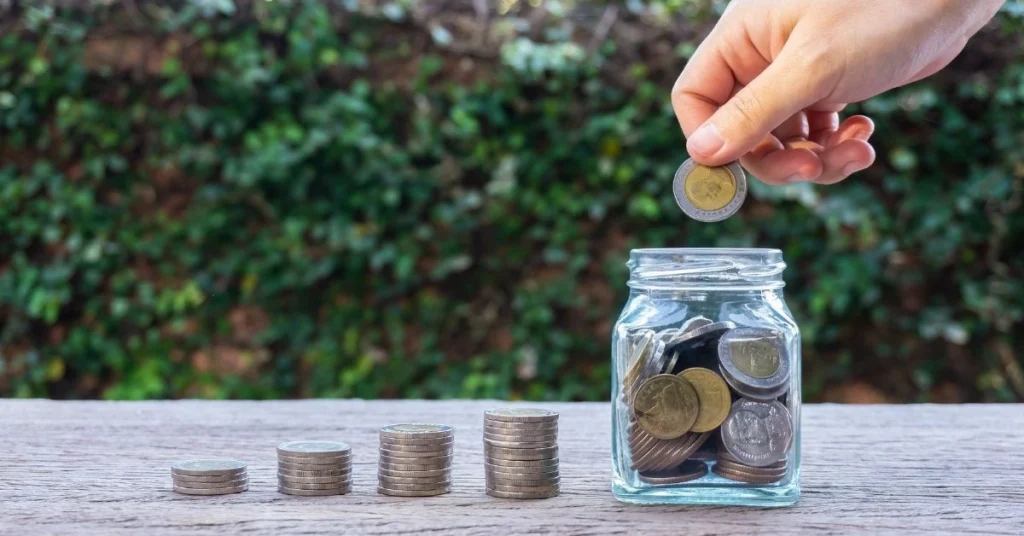gomyfinance.com saving money: Financial Growth
gomyfinance.com Saving Money: Top Tips for Financial Growth
Saving money is one of the most important financial habits. It helps you stay prepared for emergencies and achieve long-term financial freedom. Whether you want to buy a home, travel, or retire comfortably, money-saving strategies are key.
Many people struggle with personal finance because they don’t have a plan. Small daily expenses add up quickly, making it difficult to set money aside. However, with smart ways to save money, anyone can build a strong financial future.
Frugal living tips don’t mean giving up everything you love. They focus on better financial planning, cutting unnecessary costs, and making smarter choices. Simple budgeting tips can lead to long-term financial stability.
This blog will share the best ways to save money while maintaining a comfortable lifestyle. From budgeting apps to grocery shopping hacks, you’ll find easy ways to cut expenses and grow your savings. These tips will help you build effective money management habits that last a lifetime.
| Aspect | Fact/Strategy | Figure/Example |
|---|
| Importance of Saving Money | Saving helps with emergencies and long-term financial goals such as buying a home, traveling, or retiring comfortably. | – |
| Budgeting | A well-structured budget helps track income, expenses, and savings. | – |
| Clearly Defined Budget | Categorize expenses into necessities (rent, groceries) and discretionary spending (shopping, entertainment). | – |
| Budgeting Apps | Apps like Mint, YNAB, PocketGuard track spending and provide insights. | – |
| 50/30/20 Rule | Allocate 50% of income to necessities, 30% to personal spending, and 20% to savings and debt repayment. | – |
| Reducing Utility Bills | Energy-efficient habits like using LED bulbs, turning off unused appliances, and washing clothes in cold water. | Save 10-20% on energy bills |
| Grocery Shopping Hacks | Meal planning, creating shopping lists, using coupons, and buying in bulk helps reduce food expenses. | Save up to 30% on groceries |
| Cancel Unused Subscriptions | Cancel memberships and subscriptions that are no longer needed. | Save up to $200/month |
| Transportation Savings | Use public transportation, carpool, or compare insurance rates to cut down on costs. | Save 15-30% on transportation costs |
| Second-Hand and DIY | Purchase second-hand items and perform DIY home repairs to save money. | Save up to 50% on clothing and furniture |
| Savings through Financial Planning | Set clear savings goals, use high-yield savings accounts, and build an emergency fund. | Emergency fund target: 3-6 months of expenses |
| Paying Off High-Interest Debt | Focus on paying off high-interest debt first (e.g., credit card debt). | Save money on interest payments |
| Cashback and Rewards Programs | Use cashback credit cards and loyalty programs for everyday purchases. | Save up to 5-10% on regular purchases |
| High-Yield Savings Accounts | A high-yield savings account earns more interest than a standard one, accelerating wealth growth. | Average 0.50-2% interest rate on savings |
| Emergency Fund | Build an emergency fund with 3-6 months’ worth of living expenses to avoid debt in case of emergencies. | $5,000-$15,000 depending on living expenses |
| Debt Repayment Methods | The snowball method (pay off the smallest balance first) and the avalanche method (pay off the highest-interest debt first). | – |
| Budgeting Apps | Apps like Mint, YNAB, and PocketGuard track spending, set savings goals, and offer budgeting insights. | – |
| Impulse Spending | Avoid impulse spending by setting a budget, sticking to shopping lists, and limiting discretionary spending. | Save up to 30% on impulse purchases |
Smart Budgeting Tips for Saving Money

A well-structured monthly budgeting guide is the foundation of financial success. It helps track your income, expenses, and savings goals. Knowing where your money goes makes it easier to follow saving money tips that work.
Create a Clearly Defined Budget
A good personal finance plan starts with a budget. List your income sources and expenses to see how much you can realistically save. Tracking expenses allows you to identify areas where you can cut back.
Categorize expenses into necessities (rent, groceries) and discretionary spending (shopping, entertainment). This method prevents overspending and helps automate savings effectively.
Use Budgeting Apps for Personal Finance
Technology makes money-saving strategies easier. Apps like Mint, YNAB, or PocketGuard automatically track spending and provide insights. They help you stick to your budget and reduce monthly expenses.
Many budgeting apps also send alerts when you overspend. Using these tools ensures that saving money becomes a daily habit.
Follow the 50/30/20 Rule for Effective Money Management
This simple rule helps improve money management habits. Spend 50% of your income on necessities, 30% on personal spending, and 20% on savings and debt repayment.
If you have high-interest debt, focus on paying it off first. Allocating your money wisely ensures that you reach financial freedom faster.
Practical Ways to Reduce Monthly Expenses
You don’t need extreme frugal living tips to save money. Cutting expenses in small ways can lead to big savings over time.
Reduce Utility Bills with Smart Energy Habits
Energy costs take up a large part of household expenses. Turning off unused appliances, adjusting your thermostat, and using energy-efficient devices can cut energy bills significantly.
Switching to LED bulbs and washing clothes in cold water also helps. Reducing electricity and water usage is an easy way to save money monthly.
Grocery Shopping Hacks for Budget-Friendly Meals
Food expenses can be reduced with grocery shopping hacks. Plan meals in advance, create a shopping list, and use coupons to cut expenses.
Buying in bulk and choosing store-brand products saves money without sacrificing quality. Shopping with a budget prevents unnecessary impulse purchases.
Cancel Unused Subscriptions and Memberships
Many people pay for subscriptions they rarely use. Check your bank statements and cancel services you no longer need. Reducing monthly expenses like gym memberships or streaming services can free up extra cash.
Look for free or shared alternatives. Many services offer student or family discounts, allowing you to save more money without losing benefits.
Save on Transportation Costs
Gas, car maintenance, and insurance can be expensive. Using public transportation, carpooling, or biking helps cut expenses significantly.
If you drive, compare auto insurance rates and consider downsizing to a fuel-efficient vehicle. Every small saving adds up in the long run.
Buy Second-Hand and DIY Whenever Possible
Not everything needs to be brand new. Thrift stores and online marketplaces offer great deals on clothing, furniture, and electronics. Buying second-hand is a smart way to save money on purchases.
For home repairs, consider DIY projects instead of hiring professionals. Learning basic skills like sewing or minor plumbing fixes helps reduce expenses even further.
Maximizing Savings Through Smart Financial Planning

Saving money isn’t just about cutting expenses. It’s about using money-saving strategies that help your wealth grow over time.
Set Clear and Realistic Savings Goals
Having a goal makes saving easier and more motivating. Whether it’s for an emergency fund, a vacation, or retirement, set a clear timeline and amount.
Break large goals into smaller milestones. This makes saving feel achievable and keeps you focused on your progress.
Use High-Yield Savings Accounts for Better Returns
Not all savings accounts are the same. A high-yield savings account earns more interest than a standard one, helping your money grow faster.
Look for accounts with no monthly fees. Smart financial planning means choosing options that maximize your returns.
Build an Emergency Fund for Financial Security
An emergency fund is essential for unexpected expenses. Aim to save three to six months’ worth of living costs to avoid relying on high-interest debt.
Even small weekly contributions help. Having financial security ensures peace of mind during difficult times.
Pay Off High-Interest Debt to Save More
Debt can make saving money difficult. High-interest debt, like credit cards, costs you more over time. Paying it off quickly frees up extra cash.
Consider debt repayment strategies like the snowball or avalanche method. The less debt you have, the more money you can save.
Use Cashback, Discounts, and Rewards Programs
Many cashback and rewards programs offer discounts on everyday purchases. Always check for promo codes or use cashback credit cards for extra savings.
Loyalty programs at grocery stores, gas stations, and online shops help reduce costs. Using these perks wisely allows you to save money on purchases without changing your lifestyle.
Conclusion
Saving money is a crucial step toward achieving long-term financial security and freedom. Whether you’re looking to pay off debt, save for a major purchase, or build an emergency fund, adopting smart budgeting habits, reducing unnecessary expenses, and making strategic financial choices will put you on the path to financial success. It doesn’t require drastic changes—small steps, like tracking your spending, using budgeting apps, and taking advantage of savings programs, can add up to significant savings over time. By following the money-saving strategies shared in this guide, you can cultivate a more secure and prosperous financial future.
How can I start saving money if I have little income?
Start by creating a budget to track your income and expenses. Even if you can only save a small amount each month, consistency is key. Look for small ways to reduce expenses, like cutting back on subscriptions or finding cheaper alternatives for groceries.
What is the 50/30/20 rule for budgeting?
The 50/30/20 rule is a simple budgeting guideline: allocate 50% of your income to necessities, 30% to personal spending, and 20% to savings and debt repayment. This helps prioritize financial goals while ensuring balanced spending.
How can I save money without sacrificing quality of life?
You don’t have to sacrifice the things you love to save money. Focus on reducing wasteful spending, like making smarter choices at the grocery store, canceling unused subscriptions, or finding cost-effective entertainment options.
What are some easy ways to reduce household expenses?
Start with reducing energy usage by switching to energy-efficient appliances and turning off unused electronics. Additionally, consider buying second-hand items or using coupons for groceries. Every small change can contribute to overall savings.
What is a high-yield savings account, and why should I use one?
A high-yield savings account offers a higher interest rate than a regular savings account, helping your money grow faster. It’s an excellent option for building your savings with minimal effort and risk.
How can I build an emergency fund if I have a lot of debt?
Begin by prioritizing your debt repayment, especially high-interest debt, while contributing a small amount to your emergency fund. Gradually increase your savings as you reduce debt. Having an emergency fund provides financial security in case of unexpected events.
Are there any good apps for budgeting?
Yes! There are several great apps like Mint, YNAB (You Need a Budget), and PocketGuard that help you track your spending, set savings goals, and stay on top of your financial health. Many apps offer features to help you stick to your budget and find ways to cut costs.
How do I avoid impulse spending?
Impulse spending often happens when you don’t have a clear budget or plan. To avoid it, create a shopping list and stick to it, set limits for discretionary spending, and avoid browsing online stores without a purpose.
What’s the best way to pay off debt quickly?
The two most common methods for paying off debt quickly are the snowball method (paying off the smallest balance first) and the avalanche method (paying off the highest-interest debt first). Choose the method that works best for you and stay consistent in making extra payments.
Can using cashback programs really help me save money?
Yes, cashback programs can be a simple way to save money. By using cashback credit cards or signing up for loyalty programs, you earn rewards on everyday purchases, which adds up over time.







